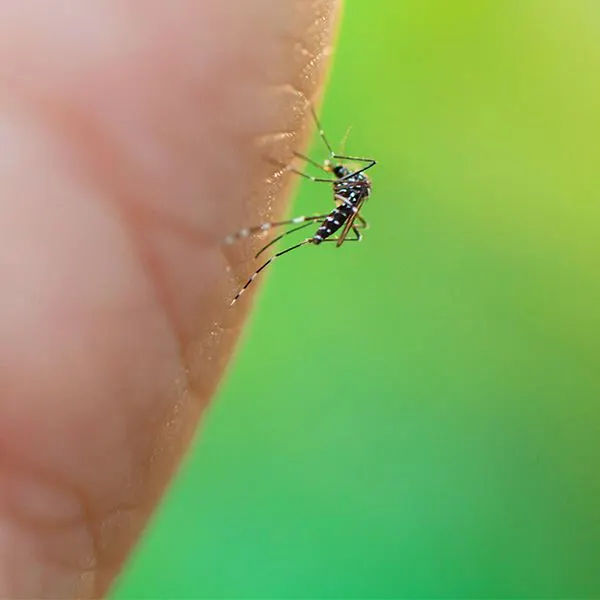Many different kinds of pests thrive during summer in Texas. Now that the season’s here, there’s no better time to keep an eye out for these animals. Although they can play important roles in the environment, pests can also do lots of damage to your landscaping or home, and some can even harm people.
Here’s a brief guide to learn more about common summer pests in Texas and what you can do to deal with them.
Aphids
These sap-loving insects are commonly found in gardens and can appear pear-shaped in colors such as green, yellow, red, black, brown, or gray. Aphids like living in landscapes that host some of their favorite plants and trees, which include ash, jasmine, pines, oaks, peach, roses, vegetables, hydrangeas, and plenty of others.
Are Aphids Harmful To People?
Aphids won’t harm people, but they can hurt your garden. They like to eat the sap from the plants we mentioned above, which can cause stunted growth and weakness. You can deal with aphids by spraying them with water, using essential oils, or introducing natural predators such as ladybugs or green lacewings to keep their population down.
Mosquitoes
Texas is home to more than 80 species of mosquito, and each one can host countless individuals. Summer in Texas might be the mosquito’s favorite time of year because it needs a warm, moist climate to thrive. Mosquito eggs hatch in standing water, where they begin their life cycle. They progress to larvae and pupae before finally reaching adulthood – a process that takes about a month.
Mosquitos can be harmful to people. Not only do their bites leave behind itchy bumps that no amount of scratching can satisfy, but they also carry serious diseases such as the Zika virus, West Nile virus, dengue fever, and Eastern equine encephalitis.
How Do I Get Rid Of Mosquitoes?
If you want to control mosquitoes, get rid of standing water on your property from places such as inactive fountains, bird baths, kiddie pools, and other sources like these. You can burn citronella candles to keep them at bay when you want to enjoy time outside, and planting basil, lemongrass, lavender, rosemary, or mint can help to repel them as well.
Termites
Like ants, termites live in colonies that can contain tens of thousands of individuals. One termite isn’t going to cause any noticeable harm, but a colony operating around the clock sure can.
Termites like to eat cellulose, which is the organic material in wood that gives it its structure. Because of this, you can find termites all over your property because there’s wood everywhere you look – from trees to bark, furniture, your deck, and – of course – the rest of your house.
A severe enough termite infestation can be dangerous. When enough material is eaten away, everything we just mentioned can become at risk of a structural collapse. Beyond this risk, termites don’t present much of a risk to people because they aren’t known to bite or sting people.
If you have termites, or suspect that you do, this is a problem you’ll want a professional exterminator to address!
Fleas & Ticks
Fleas and ticks love warm weather almost as much as they love you and your pets. Fleas and ticks like to hide on leaves, grass blades, and brush where they’re likely to encounter a host. When you or your pet walk, run, or play in these areas, these critters take their chance and leap on and begin to drink blood.
Fleas and ticks aren’t just creepy nuisances, they can cause real harm by spreading illnesses such as Lyme disease. In some cases, pets infested with too many fleas or ticks can develop anemia.
Do You Need Help with Summer Pests?
Your garden can host all kinds of potentially harmful pests, but that doesn’t mean you can’t put up a fight. If you’ve tried to control pests on your own and haven’t been successful, our experts at Purple Care can help!
Once we learn more about the type and level of infestation you’re facing, our experts can apply the right techniques, tools, and materials to restore order to your garden. You’ll be amazed at what we at Purple Care can do when you contact us for help!
Learn more about our services when you call (817) 880-6052 or reach out to us online.




Comments (0)
Thanks for your comment!
Thanks for your feedback! Your comments have been successfully submitted! Please note, all comments require admin approval prior to display.
Error submitting comment!
There is a problem with your comment, please see below and try again.